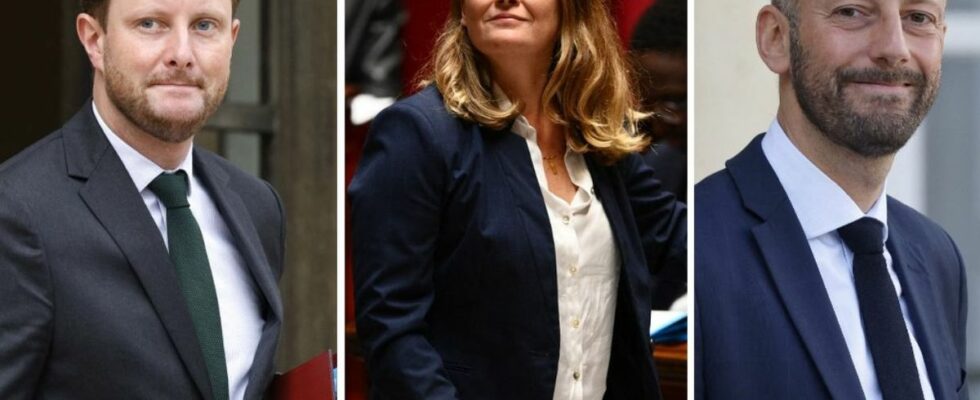It is not only for the presidential election that the parties are set up four years in advance. At the end of 2022, the Parisian municipal elections of 2026 are already agitating the General Staffs, in particular on the presidential majority side. It was Marlène Schiappa, the Secretary of State in charge of the Social and Solidarity Economy and Associative Life, who somehow spilled the beans. in an interview at Figaro. Not only is she positioning herself to play a role in four years, but she is unveiling the first floor of the Macronist strategy: a change in the voting system. The majority considers that the current rules are unfavorable to them.
“The track of a law in 2023 is seriously considered”, affirms to 20 minutes a government source. The most probable hypothesis: that the Council of Paris is elected on the scale of the entire city. Today, councilors are elected by borough. The method of calculation would be the same as at present, and in force in all cities with more than 1,000 inhabitants: the winning list automatically obtains 50% of the seats at stake, the rest being distributed proportionally between all the lists having obtained more 5%; which ensures a large majority to a list that came out on top, even far from 50%. The macronists find it fairer to elect the mayor “directly” (it would still be an indirect election) and simpler (when it would now take two ballot boxes, one for the Council of Paris, one for the borough council, compared to only one today).
A now structural advantage for the left
The reason is actually more political. After being disadvantaged for a very long time by this method of voting, the left is more difficult to beat today given // the sociological evolution of the Parisian population. For she firmly holds her bastions of thst, so that it seems unlikely, in the short term, to see it lose the 10th, the 11th, the 13th, the 18th, the 19th or the 20th. And that’s a lot of seats. The Parisian municipal election is in fact mainly played out in three sectors : the center (1st, 2nd, 3rd, 4th), 12th and 14th. For the left to lose its absolute majority in the Council of Paris in 2026, it must lose all three. Not easy when you remember that in 2020, for example in the 12th, the Hidalgo list won with 55% of the votes.
In the municipal majority, precisely, we see red: “It is electoral tampering, protests Rémi Féraud, the president of the socialist group at the Council of Paris. The voting system was not invented by and for Anne Hidalgo, and it did not prevent Jacques Chirac from making the grand slam! [gagner tous les arrondissements, en 1983 et 1989]. This is the bad loser strategy. “He also defends the democratic nature of this rule which, according to him, “has allowed alternation in the three cities where it is implemented”. Same story with Nour Durand-Rocher, vice-president of the environmental group, who finds “undemocratic to remove proximity to elected officials”.
Work to be done
To prevent this reform from being (too) perceived as an anti-Hidalgo missile, the change could also concern Lyon and Marseille, where the voting system for municipal elections is similar. Without a majority in the National Assembly, Renaissance nevertheless has a ready-made ally to pass this law: LR. Admittedly, the right-wing party no longer has deputies in Paris, and only four in the whole of Île-de-France, but it remains the main opposition to the Council of Paris. And seems quite willing to vote for a possible reform: “There is a crisis of legitimacy, and this raises the question of the confidence of the citizens, believes the adviser from Paris Nelly Garnier. We are in favor of the principle of voting for a person, a head of the list, as is done in other cities.
If the Macronie, or the right, want to have a chance of winning in 2026, changing the voting system seems to be an essential condition. But far, very far from being enough. Because if this new rule had been in force in 2020, Anne Hidalgo would have won, and with an even larger majority in the Council of Paris. It will therefore be necessary to convince the electorate on the merits. And after the 2020 fiasco, Renaissance has its work cut out for it. But we assure that it has started: “We are structuring, we want to do a work of reflection and doctrine by 2024”, details a Parisian parliamentarian from the majority. With whom ? Overall, elected Macronists in Paris, in particular parliamentarians and ministers.
“At the initiative of Olivia Grégoire, Clément Beaune and Stanislas Guerini, the three ministers elected in Paris, Parisian elected officials meet once a month to discuss the challenges of capitale but by 2022 (OJ, dark stores…), not 2026”, they say at Olivia Grégoire. “If they see each other, it’s not to talk about the rain and the good weather, it’s with a goal…”, we correct on the side of Stanislas Guerini. Where it is explained rather that it is the Minister of the Public Service who is at the initiative. Be careful, not as a leader, “but he saw that Beaune was going there on his side, that Grégoire was going there on his side, he wanted to avoid it going all over the place. We wanted to create a collective, to avoid the mistakes of the past”. Understand: a dissidence like in 2020. Obviously on this subject, there is still a little work.

